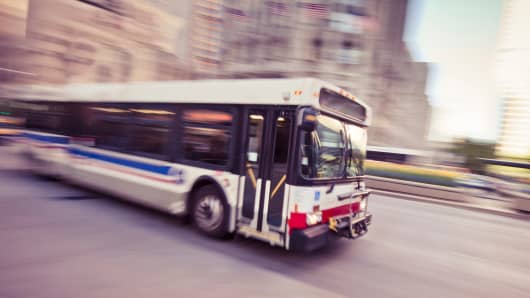The bad news for transit workers is no surprise to Ed Watt, who drove a bus in Brooklyn and Manhattan for 20 years and now serves as the Director of Health and Safety for the Transport Workers Union of America AFL-CIO. It's a job that leads to higher rates of medical issues for a number of conditions, including diabetes, high blood pressure, carpal tunnel syndrome and chronic obstructive lung disease, according to information from the National Institute for Occupational Safety and Health.
"First the sedentary nature of the work, sitting much of the day with the inability to move around, even for bathroom breaks," Watt said via email. "The second is the mobile nature of the job leaves poor food choices. So fast food rules."
"The other factor is that these jobs are highly stressful," he said. "The stress of the jobs results from high demand and low control over the work. Traffic, people and schedule are all big items that are beyond your control as a driver. As a result of the stress, many are inclined to mal-adaptive coping mechanism."
The good news, Watt said, is that part of his job is working to make it easier for the transportation workers to lose the top spot on the Gallup list.
Production workers, the game is on.


